Salt of the Earth: where are the glaciers in Iran from (7 photos)
In Iran, in the Zagros mountains, there are unusual salt glaciers that arouse interest with one of their unusual name. It turns out that salt under certain conditions behaves in much the same way as ice - being seemingly solid, it nevertheless slowly flows down under the force of the earth gravity. 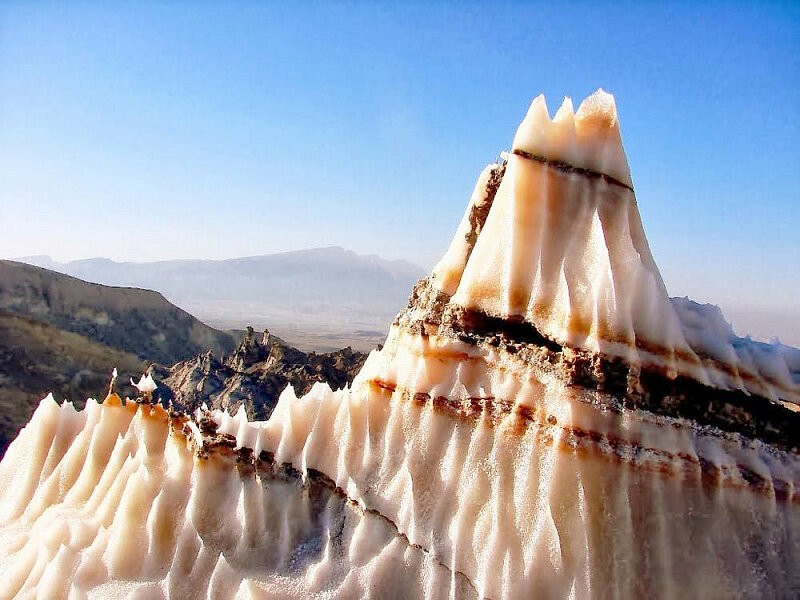
A real mountain of salt
Specifically, Iranian salt glaciers spread during their existence is quite large area, occupying today about 6.5 kilometers in length. The nature of their occurrence is somewhat similar to volcanic - at least so clearly explain that salt, having broken the surface of the earth in a certain place, it begins to rise through the "mouth".
It is clear that the reason that the salt rises to the top is different from the one that drives up the fiery lava of volcanoes. Salt has lower specific gravity compared to those rocks that are above her, so she begins to be squeezed out - just in this sense, the behavior and it is similar to the behavior of an ordinary liquid. 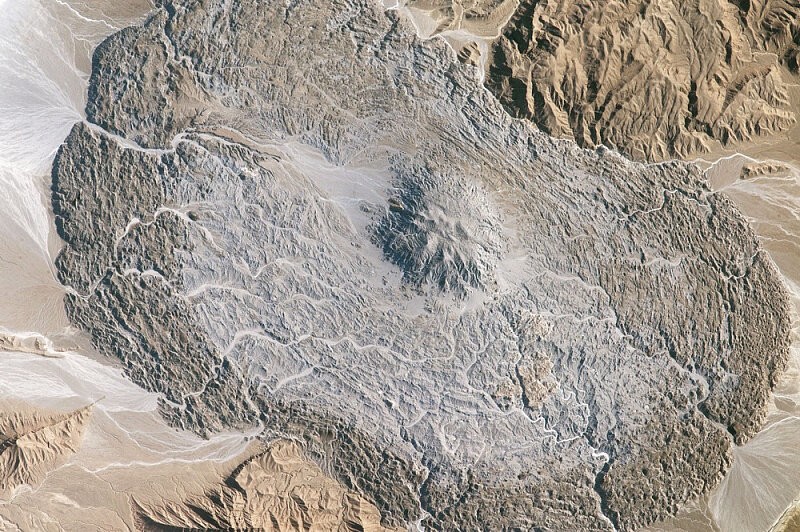
And this is a salt glacier in the Zagros mountains - you can see that the salt spreads from the central dome, where it breaks through the ground
Only, of course, everything happens much more slowly and does not always a pillar of salt breaking through the earth comes to the surface. But even if everything coincided - that is, there is a lot of salt and it went upstairs - it is important also the fact that the salt does not dissolve from moisture.
In this sense, in the Zagros mountains, all the conditions simply coincided - the arid climate has provided "complete comfort" to the local salt glaciers. Sometimes the conditions are such that the salt stop breaks through surface, but that's where it all ends. 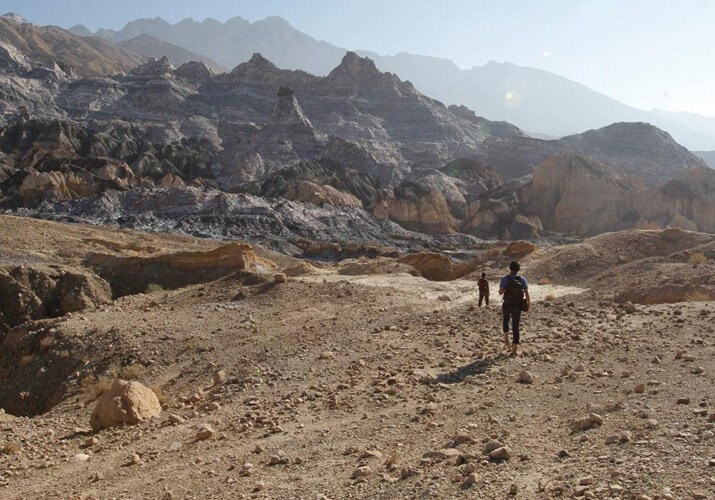
Visual scale - people go to the salt mountain
Salt ceases to be pushed out, and what nevertheless appeared on the surface, freezes, turning into salt mountains. In geology, such formations (not necessarily from salt) are called diapirs - from Greek "to pierce".
So here, in the Zagros mountains, are the most famous diapirs are salt domes. This definition includes education area from 1 to 100 square kilometers - there are those over a hundred. 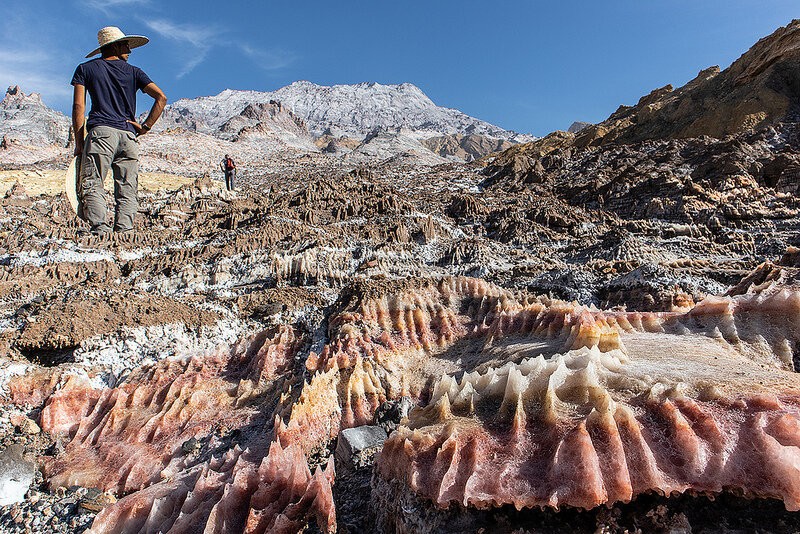
Salt is literally under your feet
There are much more salt mini-slides here - the salt lies literally underfoot, you can walk, stumbling over salt bumps. Where does it come from a lot of salt?
In general, it is believed that the main peddler of salt is the world ocean. The salt cycle in nature means that it enters the soil and even deep into the earth along with sea water. The theory says that those territories that are now known for their salt deposits, once were the bottom of the seas and oceans. 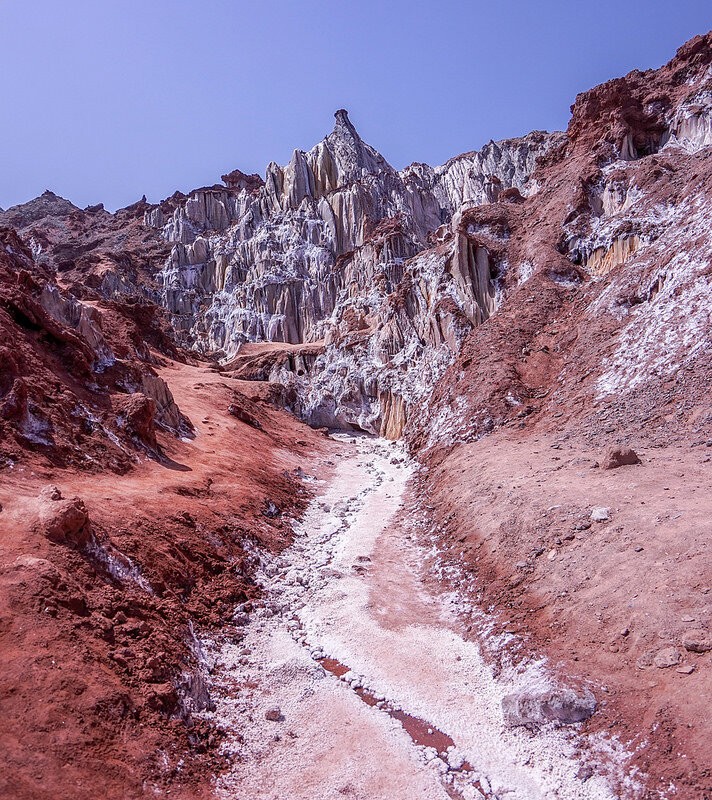
The path of salt leads, of course, to the salt mountain
The example of Zagros is indicative - in ancient times, what is now is the Persian Gulf, covered a much larger part of the land. Then the ocean receded, the remaining water evaporated, leaving layers of salt. After dust was applied, or maybe mountains collapsed - in general, a layer of salt was buried under layers of earth, stones, etc.
There are other theories linking the cause of water evaporation in places of formation of salt deposits not with solar activity, but on the contrary, with the activity of the Earth itself. In other words, the theory is about that the evaporation of salt from the water was due to the heating of the earth, which, in turn, is associated with volcanic activity and similar processes. 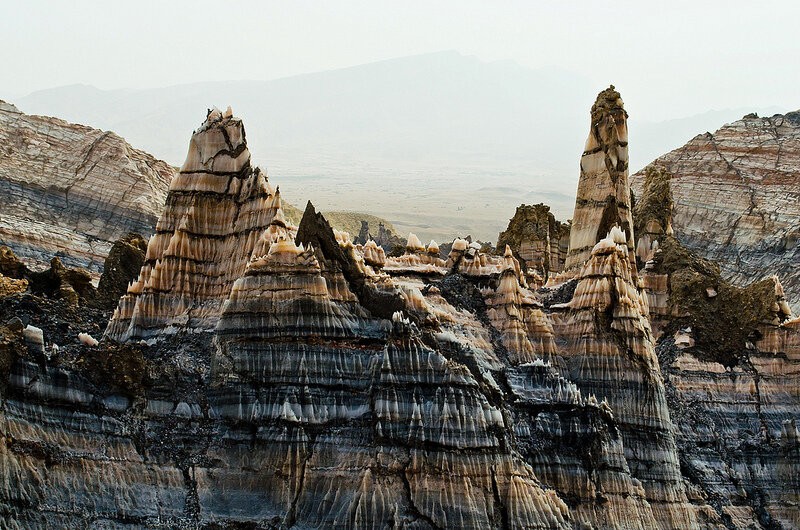
Salt domes of Zagros
Perhaps both theories are close to the truth, but in our case it is interesting to look at what eventually happened in the mountains of Iran.
The fact is that the very phenomenon of the emergence of salt domes known in many parts of our planet - almost everywhere where salt is mined. But there are no such formations anywhere else in the world - this is if we talk specifically about such a large-scale accumulation of salt domes, and even adjacent to salt glaciers. 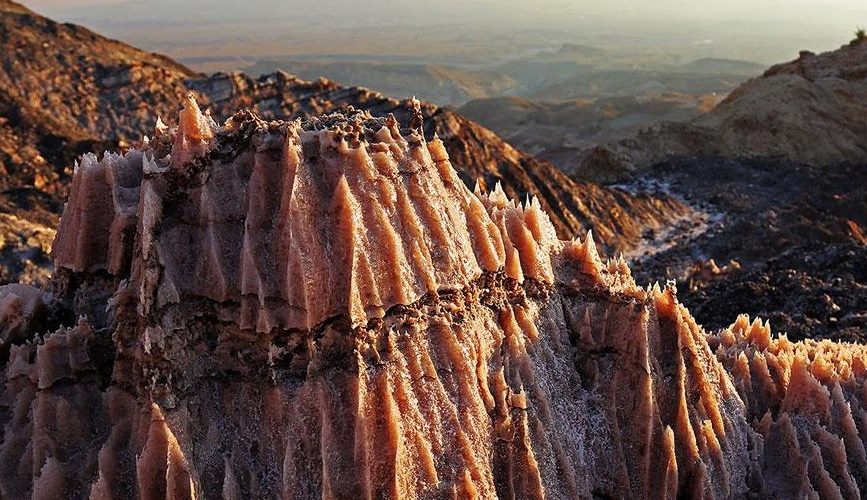
Salt domes of Zagros






















